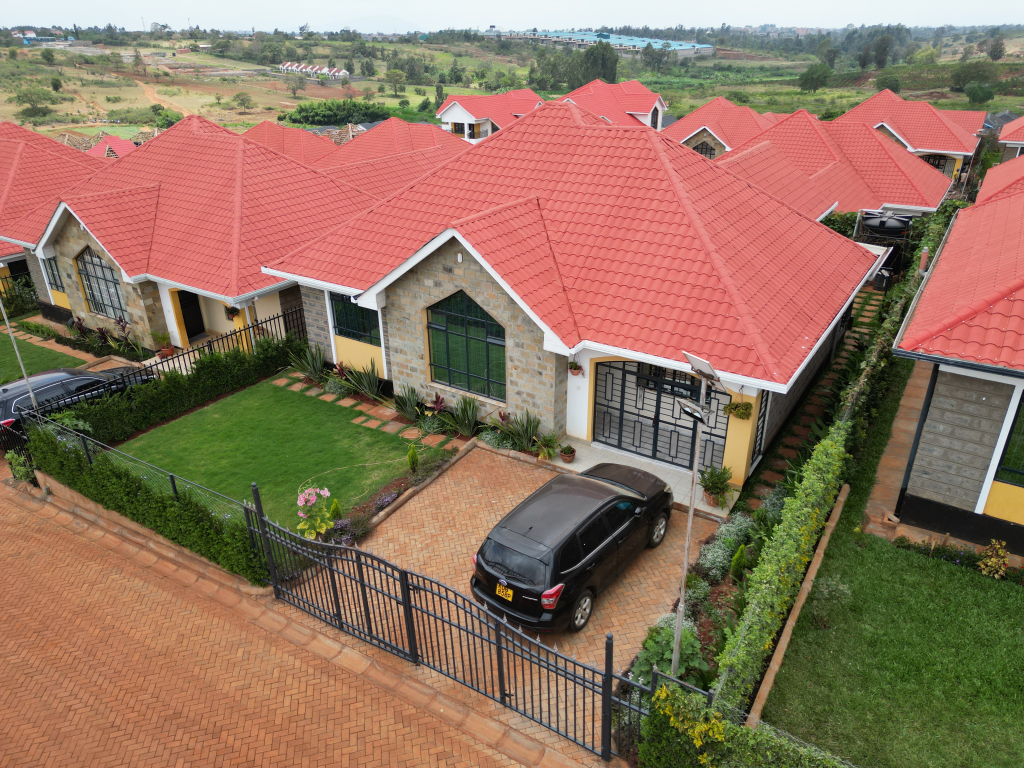
Are you on the hunt for your dream home in Kenya?
Whether looking for houses for sale in Nairobi or exploring homes in suburban areas such as Kenyatta Road and Juja, navigating the Kenyan real estate market can be exciting and overwhelming. This guide will walk you through a DIY approach to finding the perfect property, covering essential tips and tricks to make your homebuying journey smoother.
1. Define Your Homeownership Goals
Before diving into property listings, it’s crucial to clarify what you’re looking for. Are you seeking a spacious family home, a cosy bungalow, or a luxurious flat roof maisonette?
Consider factors such as:
- Location: Proximity to work, schools, and amenities.
- Budget: Determine how much you can afford, including down payments and mortgage plans.
- Type of Property: Decide if you prefer bungalows, maisonettes, or modern apartments.
Having a clear vision will help you filter through the numerous houses for sale in Kenya more efficiently.
2. Research Real Estate Companies in Kenya
Partnering with reputable real estate companies in Kenya can save you time and help you find better deals. Look for agencies with positive client reviews, strong portfolios, and transparent processes.
Some companies specialize in specific areas, such as houses for sale in Nairobi, while others have nationwide listings.
Willstone Homes is one of the top real estate companies in Kenya, known for its commitment to quality and customer satisfaction. They offer a wide range of real estate properties tailored to meet different budgets and lifestyles, making them a reliable partner in your home search.
DIY Tip: Always verify the credibility of real estate agents. Request to see their registration with professional bodies like the Estate Agents Registration Board (EARB).
3. Assess the Neighborhood
When buying a home, the neighborhood is just as important as the property itself. Consider factors such as safety, accessibility, proximity to essential services, and the general environment.
Key considerations include:
- Safety and Security: Check crime rates in the area and availability of security services.
- Amenities: Proximity to schools, hospitals, shopping centers, and recreational areas.
- Transport Links: Accessibility to major roads and public transportation.
- Future Development: Are there any upcoming projects that could increase property value?
Visiting the neighborhood at different times of the day can give you a better feel of the area’s vibe.
4. Visit the Properties in Person
While online photos are helpful, nothing beats an in-person visit. Schedule tours to get a real feel of the neighborhood, inspect the property’s condition, and check for potential red flags like structural issues or poor drainage.
Checklist for Property Visits:
- Inspect walls, ceilings, and floors for cracks.
- Check water pressure and plumbing.
- Test electrical outlets and switches.
- Evaluate the security of doors and windows.
- Observe noise levels in the area.
- Check natural lighting and ventilation.
Spending time around the property can help you identify any hidden issues that might not be apparent in listings.
5. Consider the Future Value
When buying a property, think beyond your immediate needs.
Look for houses for sale in Nairobi and other areas with high growth potential. Consider factors like upcoming infrastructure projects, schools, shopping centers, and public transport access, which can significantly boost property value over time.
Investment Insight: Areas undergoing rapid development often offer properties at lower prices, which can appreciate quickly. Understanding property market trends can help you make a smart investment decision.
6. Understand Legal Procedures
Navigating the legal aspects of real estate can be tricky. Ensure you:
- Verify Land Ownership: Check the title deed at the Ministry of Lands to confirm ownership.
- Conduct Due Diligence: Investigate any disputes or unpaid land rates.
- Hire a Real Estate Lawyer: They can help with contract reviews, negotiations, and ensuring a smooth transfer of ownership.
- Review Sale Agreements: Ensure all details about the property, payment terms, and conditions are clearly stated.
- Check Zoning Laws: Understand the land use regulations in the area to avoid future conflicts.
7. DIY Home Renovation Ideas to Add Value
Once you’ve secured your property, consider DIY renovations to personalize your space and increase its value:
- Painting: A fresh coat of paint can transform interiors and exteriors.
- Landscaping: Simple gardening projects can boost curb appeal.
- Lighting Upgrades: Modern fixtures can enhance aesthetics and energy efficiency.
- Kitchen/Bathroom Updates: Small changes like new cabinet handles or faucets make a big difference.
- Space Optimization: Adding shelves, partitions, or converting unused spaces into functional areas.
These improvements not only make your home more comfortable but also enhance its market value if you decide to sell in the future.
8. Budget Wisely for Hidden Costs
Apart from the purchase price, factor in additional expenses:
- Legal fees
- Stamp duty
- Valuation fees
- Moving costs
- Utility connections
- Home maintenance and repairs
- Insurance costs
Planning ahead will prevent financial surprises down the road and ensure a smoother homeownership experience.
9. Engage with the Community
Once you’ve found your dream home, connecting with your new community can enhance your living experience. Attend neighborhood meetings, join local social groups, and familiarize yourself with community activities. A strong community network adds value to your property and contributes to your overall well-being.
Final Remarks
Finding the perfect home in Kenya doesn’t have to be overwhelming.
By taking a proactive, DIY approach, you can navigate the real estate market confidently. From setting clear goals to assessing neighbourhoods and understanding legal processes, every step you take brings you closer to your dream home.
Pro Tips:
- Stay informed about market trends to identify the best investment opportunities.
- Always have a buffer budget to cover unexpected costs.
- Build strong relationships with trusted real estate agents and legal advisors.
- Document every transaction and agreement to avoid future disputes.
- Don’t rush—take your time to find a home that truly meets your needs.
Your dream home is out there, and with the right strategy, you’ll find it.




